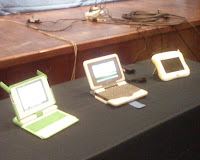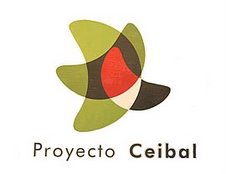Book "Ceibal in the society of the 21st century" was published.
On June th 27th we launched the book “Ceibal in the society of the 21st century - References for parents and educators” (only in spanish, at the moment), of which I had the great pride of being compiler and coordinating the production.
As we say in the introduction:
CEIBAL Plan is a great bet of Uruguay for equity, democratization of knowledge and improving education. According to the schedule, in 2009 it will finish the delivery of portable personal computers to all primary schoolchildren and teachers in the country, while running a process of updating the education system to the reality of the times.
Children are receiving owned computers for use at school, and also in their homes, opening the possibility that its use gets shared within the family. In turn, through a huge technical effort that takes the country at the forefront in terms of connectivity, the CEIBAL Plan is carrying out internet access not only to schools but also households. This will offer to the entire community a new opportunity to learn basic computing, accessing information of interest, and engage in exchanges with other actors and agencies of society.
Within this framework, it becomes more important the effort that the country has been operating to provide services to citizens via the Internet, what is known as "electronic government". This book seeks to generate discussion about the new possibilities for the community and offer some elements for exploiting them.
(...)The first chapter is an overview of the Plan, developed from the standpoint of the team that is responsible for defining its educational policies. This vision is complemented in Annex 2: "Educational Project".
Chapter 2 seeks to provide a historical perspective of the Plan, its origins, evolution and implications, mainly from the standpoint of social impact that is generating and that can be achieved in future.
We tried to reach as much people as possible, offering different readings through photographies, illustrations, sockets, etc.

You can download it online here (pdf, in spanish).
You can access more material about the book in www.ceibal.edu.uy/gobiernoelectronico.
Hope to have the chance to translate the material into English soon.











